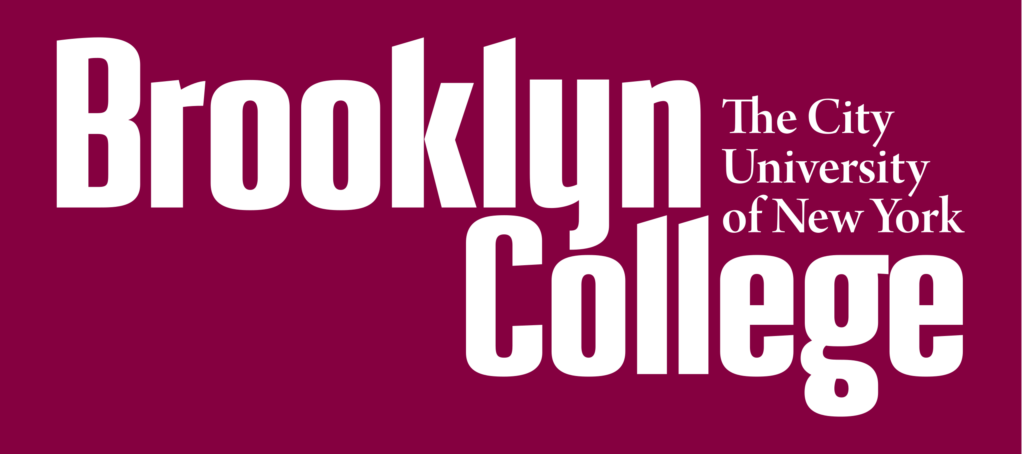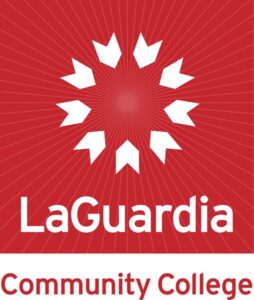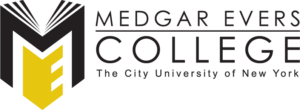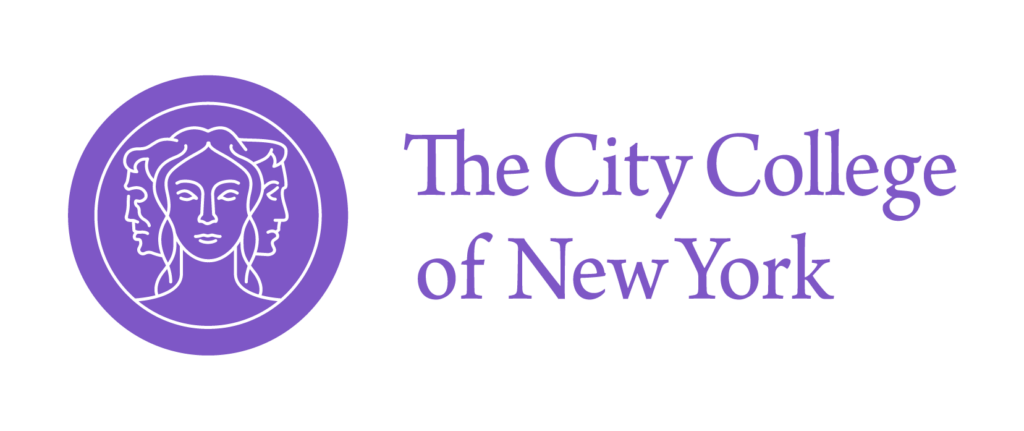The CUNY CITE project is dedicated to funding research projects that help further our understanding of how we can fit computing education into preparing the next generation of teachers. Below are the projects we’ve funded among our partner colleges in the 2022-23 funding cycle.

I Do, We Do, You Do: Introducing Computational Thinking to Teacher Education Faculty and Students
Rebecca Garte, Jennifer Gilken, Cara Kronen
Summer ’23 Research Fair Poster
The purpose of this research is to examine how introducing computational thinking concepts through low-stakes activities can shift attitudes towards computing among both faculty and students. Our goal is increase self-efficacy for engaging in CT among both faculty and students by: A) demystifying the underlying skills of computing and B) highlighting connections between CT and course concepts such as cognitive development as well as students’ own problem solving processes. By focusing on the role of computational thinking during unplugged problem solving processes, we hope to create an attitude of openness towards the integration of CT into educational coursework. Ultimately, we hope that CT will become embedded into our programs as a foundational element of the teaching and learning process. This initial research will provide insight into the most effective ways to elicit engagement and commitment from both faculty and students for this endeavor.

Building an Inclusive Computational Literacy Course in a Special Education Program: A Focus on Universal Design for Learning using Digital Literacies
Ginny Dembek, Stella Kyprianou, Yoon-Joo Lee
Summer 2023 Research Fair Poster
Our team is working to create an inclusive computational literacy project for an undergraduate special education program, focusing on universal design for learning, digital literacies, integrating Computational thinking, and Assistive Technologies within an instructional design framework. The aims of the current project are trifold, involving (1) pre-service teachers gaining strategies to develop the skills necessary to implement assistive technology (AT) and to integrate Computational thinking using AT; (2) Identifying components for data collection to enhance instructional decisions; (3) Design and implementation of CITE components within an AT context.
The questions driving this work involve examining teacher knowledge and comfort integrating technologies within the classroom, specifically the knowledge of pre-service special education teachers. This summer, resources were collected and evaluated, and techniques were gathered to increase practice for instructional design with teachers. The outcomes of the current work involve effectively evaluating the needs of future special education teachers and the knowledge required to integrate an inclusive framework within every subject- including computational thinking and digital literacies.
Using a mixed-method approach, data will be collected in a master’s level program to field test the survey. Descriptive information about teacher perceptions of AT and CT and overall knowledge acquisition related to AT will be collected. The survey results will help shape the questions for undergraduate students in the following academic year. Results from the survey following field testing will serve as pre-test and compared to post-test data collected at the course’s completion to measure outcome effectiveness. Results will help instructors continue to shape the course to be impactful for teacher candidates and future students based on strengths and challenges with content. We look forward to continuing this work.
Computational Thinking in Childhood Mathematics Education: Toward A Strategic Use of Digital and Computational Literacies in Teacher Preparation
Hanna Haydar
Summer ’23 Research Fair Poster
This project is guided by the overarching question: “How as a mathematics teacher educator do I design and implement artifacts that support a community of beginning childhood mathematics educators use technology strategically and incorporate computational thinking in teaching mathematics”. The outcomes will help evaluate the role of teacher educators and teacher preparation programs in developing a strategic use of technology in teaching mathematics and in incorporating computational thinking in mathematics instruction with intersection with culturally responsive-sustaining pedagogy.
Data will be collected in a three-cycle research sequence of whole-class teaching activities, lesson study investigations and teacher action research. Results will help with curricular and program improvement and contribute to our understanding on the characteristics of computational thinking in mathematics education and the role of mathematics teacher education programs in integrating computational thinking in the k-12 schools.
Our Journey to Valuing Computational Thinking as a Tool to Address Inequity and Cultivate Well-Being in Urban Education
Malgorzata Powietrzynska, Linda Noble
Summer ’23 Research Fair Poster
In this autoethnographic project, as teacher educators, we describe our experiences and emergent and contingent understandings as we infused computational thinking in the design of a summative assessment artifact which had significant implications for reframing our educational philosophy, syllabus, and course outline. We explore the following questions:
● Why might incorporating computational thinking in our co-taught teacher education course require reframing of our shared educational philosophy?
● How might we reframe our educational philosophy to embrace computational thinking in teacher education?
● What conditions may be necessary to sustain an equitable lens while supporting computational thinking in a teacher education foundations course?
● What resources can be drawn upon to scaffold computational thinking and embrace diversity, equity, and inclusion in teaching | learning together with our students?
Autoethnographic research on the development of curriculum and course materials towards the implementation of CT is a niche that may lack adequate exploration. This project has a potential to address this gap by highlighting our decisions and detailing explicit rationale for the steps taken to craft multiple drafts of the syllabus, examine the relevance of course materials, assessments, and assignments towards meeting our goals.

Exploring Critically Conscious, Community-Based Computing Integration for Preservice Teacher Education
Meg Ray, Euisuk Sung
Summer ’23 Research Fair Poster
Our primary goal is to explore the process and student experiences of critical computing integrated modules. A secondary goal is to revise the modules in order to use them as exemplars for further curriculum development.
Preservice Mathematics Teachers’ Integration of Computing in Lesson Planning and Perceptions of its Potential in Mathematics Teaching
Nadia S. Kennedy, Boyan Kostadinov, Ariane M. Masuda
Summer 2023 Research Fair Poster
The purpose of this research project is multi-fold. It aims at: a) exploring the implementation of a module with an integrated computing component designed for preservice teachers, b) identifying the preservice teacher learning that such implementation and the conducted equity discussions might facilitate, c) determining how preservice teachers integrate computing in lesson planning, and d) exploring prospective teachers’ perceptions of the potential of computing integration in mathematics teaching and learning. We hope to learn more about the affordances and constraints related to the implementation of computing in teacher education, as well as about mathematics preservice teachers’ perceptions of its potential in mathematics teaching, and how mathematics preservice teachers integrate computing in lesson planning.
The research study is expected to enrich the team’s understanding of the design and implementation process of activities with integrated computing in the mathematics teacher education program, the associated challenges, as well as the preservice teacher learning that it might facilitate. The study is also expected to produce insights into the prospective teachers’ perceptions about integration of computing into their mathematics teaching, and the ways in which such integration might be productive in addressing equity issues in teaching. Such insights may help in the planning and design of the integration of computing in the curriculum of the mathematics education program. The study is also expected to yield findings about the feasibility of exploring topics such as school (in)equity and segregation through an analysis of data that is relevant to the teacher candidates’ immediate field experience. We also hope to find out whether data analysis activities might be an appropriate context and starting point for ethical discussion related to race in education, and to the social consequences of the indiscriminate use of certain technologies.

The Meaning of Our Names: Transcultural, Translanguaging Learning via Computational Storytelling
Ting Yuan, Jayra Sanchez
Summer 2023 Research Fair Poster
To explicitly address equitable computing education through preservice teachers’ course learning in teaching today’s multilingual and multicultural school children, this proposed study aims to explore preservice teachers’ course learning artifacts in relation to a computational-storytelling-integrated course unit on Name Story in two literacy methods courses. Our proposed study will answer the following research questions: How do preservice teachers take up visual coding for multicultural and multilingual teaching? How do they make meaning through computational storytelling in composing their name stories?
Name Story serves as a powerful literacy teaching method to foster and affirm students’ cultural and linguistic identities as part of teaching them the writing process (Nash et al., 2018; Souto-Manning & Martell, 2016; Yuan, 2022). In our courses, we explicitly redesign it as a culturally sustaining and translanguaging practice (García, 2009; Paris & Alim, 2014) to affirm and sustain the family heritages and linguistic histories of preservice teachers through the teaching of writing. In integrating computational learning, Name Story in our courses give students a space to explore how literacy, culture, and technology intersect for multicultural and multilingual learning.
Interdisciplinary Journeys of Teaching and Learning in Computational Literacies: Collaborative Autoethnography of Seven Teacher Educators
Ting Yuan, Liqing Tao, Steven Azeka, Alanna Gibbons, Marta Cabral, Stephanie Schmier, Rebecca Curinga
Summer 2023 Research Fair Poster
In the context of the growing digital and computational-thinking divide, there is a need for understanding what equitable teaching practices look like and how the critical dimensions of computing education can be addressed in the teacher education classroom, an indispensable area of knowledge that could help us promote computational literacies in K-12 settings (Kafai & Proctor, 2022).
Our proposed study addresses the gap in research and practice by exploring a team of seven teacher educators’ teaching and learning journeys in computational literacies at the College of Staten Island (CSI). Further, our study will help produce a better understanding of how teacher educators can serve as the necessary lynchpin to fill the gap by facilitating preservice teachers’ computational education across disciplines.

Developing Computing Technology in Gateway Mathematics Courses for Students in the Early Childhood Education Program
Anders Jasson Stachelek, William Baker, Olen Dias, Edme Soho
Summer 2023 Research Fair Poster
This project will fully integrate computing technology into two gateway mathematics courses that 90% of Early Childhood students take, in order to increase their proficiency with data analysis and visualization, as well as algorithm and programming, as outlined by the NYS K – 12 fluency standards.
 Teacher Candidates’ Perceptions and Values Toward Computing Integration Within a Community College Teacher Education Curriculum
Teacher Candidates’ Perceptions and Values Toward Computing Integration Within a Community College Teacher Education CurriculumSummer 2023 Research Fair poster
Through the implementation of our computing-integrated curricular artifacts, we aim to prepare and motivate preservice teachers to equitably and meaningfully integrate computing and digital literacies into their future classrooms. In order for teachers to effectively engage in this work, they must reflect upon their own perceptions and values related to the purposes for integrating computing and technology into the curriculum. Do they feel confident in their own CT-related skills and practices? Do they perceive themselves as ‘tech-savvy’? Do they see the value in using CT literacies to address issues of social justice? Do they feel prepared to promote computational and digital literacy as an integrated teaching and learning practice? The goal of this research is to understand students’ perceptions of their own abilities and motivations for integrating CT into their teaching by addressing the following research question: What are teacher candidates’ perceptions and values toward the integration of critical digital literacies within an education foundations course? Our study will enable the research investigators to understand how the CITE curriculum implementation shapes students’ perceptions and values regarding computing-integration in teacher education. Investigating the answers to this research question will help address issues related to marginalized groups’ historical lack of access to digital literacy capacities. Our study will enable us to understand the extent to which our program is addressing these inequities by inviting students to reflect upon and share their learning experiences based on a curricular artifact designed through CUNY’s Computing-Integrated Teacher Education Professional Development initiative. This artifact was developed to foster digital literacies through critical thinking and cultural sustainability.

Fostering a sociolinguistically just approach to promoting digital fluency pedagogy among pre-service teacher candidates
Leigh Garrison-Fletcher, Monika Ekiert, Bede McCormack
Summer 2023 Research Fair Poster
Informed by our background in linguistics and education, we have taken a particular interest in documenting the linguistic diversity, or lack thereof, in educational digital tools and propose that through this project our future educators will become critical users of technology who feel empowered to question digital tools. Teaching about, with, and against technology, we hope to awaken and raise our teacher candidates’ perception and awareness of the ideologies embedded in the design of networked technologies, particularly education platforms. Through this work, we hope to raise awareness about the inequality of access to digital technology and empower our future teachers to question and push for more equitable access.

Progressively Integrating Computer Literacy Across Teacher Educational Courses
Donna Wright and Ella Russell
Summer 2023 Research Fair Poster
This proposal aims to identify the extent to which MEC Educational Faculty will be able to engage Early Childhood Special Education candidates and Pre-Service Teacher candidates in Computational Literacy in their courses by applying computational thinking to prepare them in the lessons they will teach in their clinical field experience. The faculty realizes that MEC students and pre-Service Teachers could benefit from Computational Literacy in numerous ways, especially when students transfer from Teacher candidates to certified teachers, they will be able to apply these skills and knowledge to their students and transformed the teaching learning experience. In addition, gaining the insight of computational literacy will give Teacher Candidates the tools they will need to compete and influence others in their schools and the wider education communities, so they will be more culturally responsive in their delivery. We believe this project will not only benefit our Teacher Candidates, but full -time and adjuncts faculty will use these skills to improve their pedagogy.

“Preservice Teachers as Learners, Designers and Implementers of Computational Thinking (LDI-CT)
Line Saint-Hilaire, Daisuke Akiba
Summer 2023 Research Fair Poster
The LDI-CT project aims to understand the effect PSTs knowledge of CT on their ability to write and teach CT integrated lessons. Specifically, we would like to explore whether and how, if at all, earlier exposure to CT and CT-integration would impact the PSTs’: (a) attitudes toward CT-integration; and (b) fluency in designing CT-integrated lesson plans by integrating CT in a science methods course with two groups of students, one of them would have already be exposed to CT in a previous course. This will contribute to our knowledge on how to integrate CT courses in our undergraduate teacher education program.
Promoting CT- and CT-Integration-Affirming Attitudes and Skills Among Teacher Candidates Through Metacognitive Reflections
Michelle Fraboni, Daisuke Akiba
Summer ’23 Research Fair Poster
This project aims to develop effective ways to promote positive attitudes and self-efficacy about computational thinking and digital literacy among our teacher candidates. We believe that attenuating the fear and trepidations surrounding computational thinking and its integration into curricula is the first step toward guiding teacher candidates in developing positive attitudes and self-efficacy and, ultimately, the knowledge, skills, and dispositions necessary to create equitable and inclusive environments that enable young learners to become computational thinkers, participatory creators, and literate users of digital technologies. To this end, we intend to implement multiple metacognitive activities and reflections that have shown promise in promoting teacher candidates’ positive attitudes and self-efficacy about CT and CT integration in their teaching and learning. We aim to use our findings to educate other departmental faculty about the most effective ways to infuse CT into their courses, with the ultimate goal of authentic and meaningful implementation of CT and CT integration in our program curricula.
 Development and Use of Computational Literacy Teaching Portfolios to Assist Education Faculty’s Iterative Design of Teaching Artifacts, Growth of CT Content Knowledge and PCK, and Assessment of Teaching Practices and Teacher Candidate Projects
Development and Use of Computational Literacy Teaching Portfolios to Assist Education Faculty’s Iterative Design of Teaching Artifacts, Growth of CT Content Knowledge and PCK, and Assessment of Teaching Practices and Teacher Candidate Projects
A Computational Literacy Teacher Portfolio system will be developed to document that implementation of CL instruction in methods classes at City College. Portfolio rubrics will be based on extant CS teaching standards and will provide feedback to instructors. Culturally responsive lessons planned and taught by faculty will be aligned with the school’s Conceptual Framework that emphasizes values of diversity, equity, and knowledge of an increasingly digital world.

Empower Preservice Teachers as Computational Thinkers through Strategic Program-wide Computing Integrated Teacher Education (CITE) via Student EPortfolio and Faculty Digital MakerSpace
Xin Bai, Zena Cooper, Leslie Keiler, Kara Hudon, Lisa Dunn-Lockhart, Sherone Smith-Sanchez, Laura Pawson, Natasha Cox-Magno, Clare Masullo
The study will 1) promote CT described among teacher candidates through the lens of social justice and 2) explore effective ways of faculty collaboration for a coherent CITE curriculum redesign and effective educational faculty development. We will design CT artifacts, implement them in our Teacher Ed courses, and collect data to understand how students respond to our intervention.
The project is anticipated to:
- Create a nurturing learning community that promotes equity and diversity in computational thinking, creativity, and problem-solving leveraging diversity as an asset in the process of using, creating, evaluating, and critiquing technologies.
- Broaden the participation of underrepresented and underserved groups in computing-integrated education by exposing them to computational thinking guided by research-based principles such as constructivism, project-based learning, and CRSE.
- Promote lesson design innovations so that TCs feel confident in helping their students learn how to think algorithmically and computationally to identify patterns and solve problems with varying levels of abstraction and through strategies of decomposition.
- Build an innovative framework that provides faculty with a collaboration process that is transparent, iterative, and scalable. The framework, the CITE artifacts generated, and good practices will be shared with other CUNY campuses and the learning community.


